Carer shortages: Swansea man stuck in Welsh hospital for four months
- Published
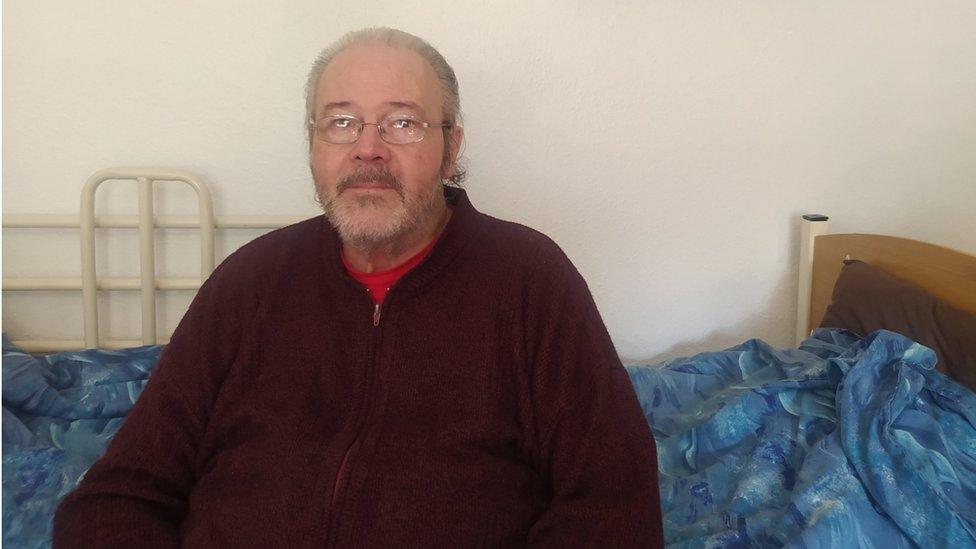
Harri Roberts said he was in a hospital ward with three others waiting to be discharged
A man who spent four months in hospital after recovering from sepsis has said it was "ridiculous" he was unable to go home due to a lack of carers.
"My legs had more or less given way because I had been in bed for so long," said IT consultant Harri Roberts.
A report by the Senedd's Health and Social Committee, external found patients ended up staying in hospital for days, or even weeks, longer than necessary.
The Welsh government said care services were facing significant challenges.
"They could not just tell me that 'you can go home' because they didn't have the staff to look after me," said Mr Roberts from Swansea.
He fell ill in Gran Canaria in December and returned to the UK where he remained in hospital until the end of April.
It was "very frustrating", he said.
"They couldn't supply me with a physiotherapist every day.
"From around mid-March onwards, then I think we could have been looking at being able to release me home if they had had the right sort of care and the right sort of carers to be able to support me.
"But they didn't have them and we had to wait until… the end of April before they were eventually able to find enough of them."
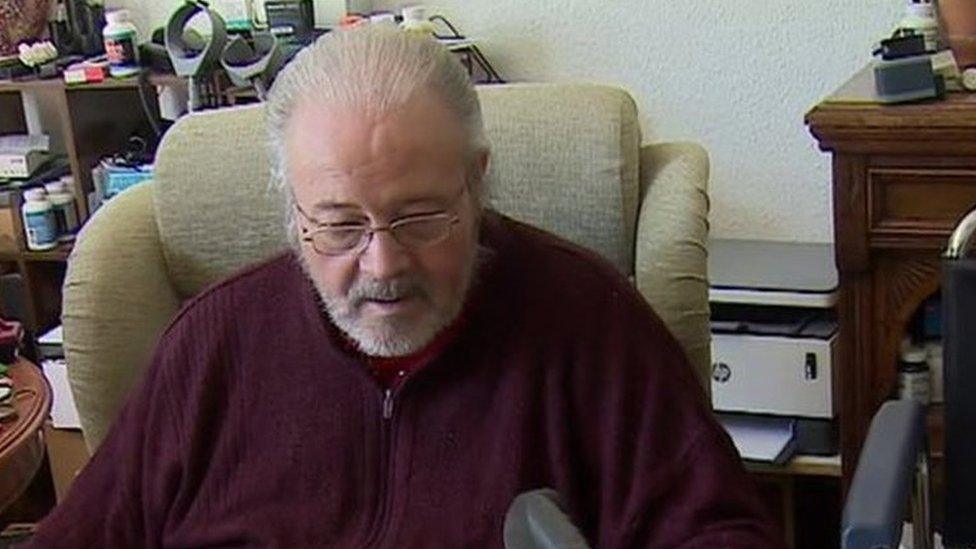
Mr Roberts said the wait in hospital was really frustrating
He said he was in a ward with three other people also waiting to be discharged.
"We were going through periods of several days at a time when all four of us were just waiting for people to find carers and so on to take us home," he added.
The Senedd committee warned the delayed transfer of patients was causing widespread failings across NHS and social care.
It said a lack of social care capacity meant family and unpaid carers were left in an "impossible position" and that it took ambulances off the roads as they queued outside emergency departments, unable to admit patients.
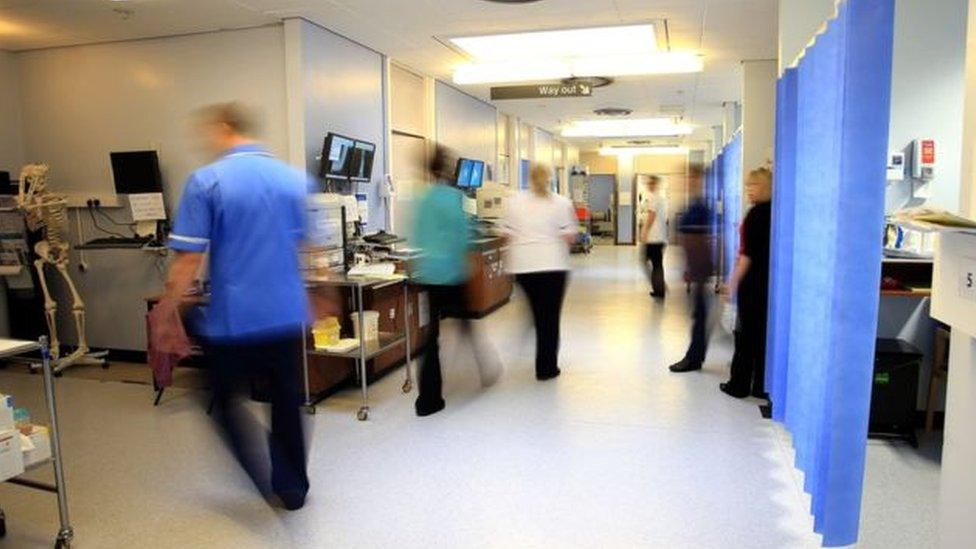
The Senedd committee found the delayed transfer of patients was causing widespread failings
It has called for immediate action to address the amount of time patients are stuck in hospital after recovering from illness.
"Behind every delay is a person who has not received the care and support they need to enable them to return home, or to move into appropriate accommodation," said committee chairman Member of the Senedd Russell George.
"Hearing about ambulances queuing outside A&E, while people suffering severe injury are left to wait for hours - sometimes with life-threatening consequences - is deeply worrying.
"But, unless radical steps are taken to reform the way in which social care is provided, rewarded and paid for, we are unlikely to see the changes necessary to stop patients being stranded in hospitals," he said.
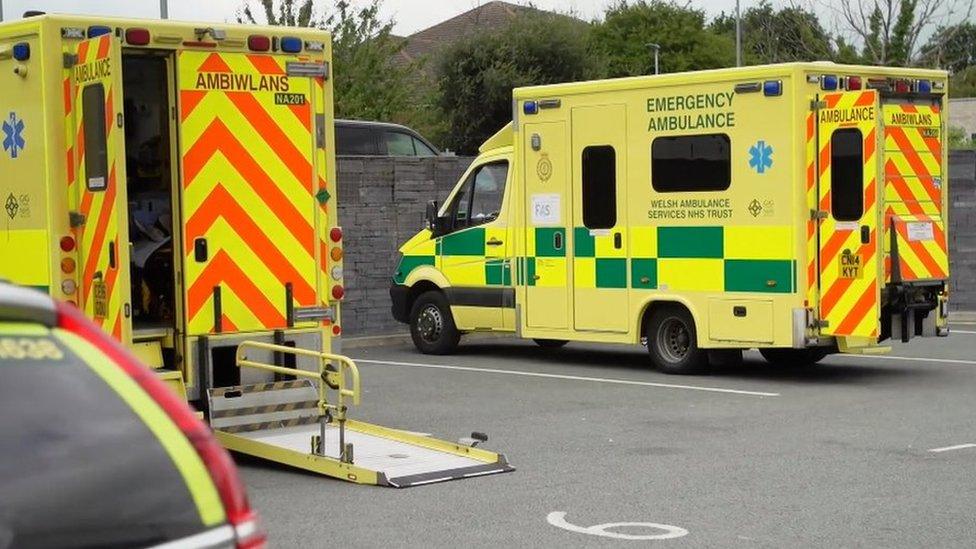
Ambulances queuing outside hospitals "deeply worrying"
The committee heard evidence from organisations across the health and social care sectors, including Jason Killens, chief executive of the Welsh Ambulance Services NHS Trust.
"Considerable amounts of our capacity are unavailable to us," he said, adding that it led to patients waiting for "very long periods of time".
"The level of service that we're offering to those patients is unacceptable," he added, while promising improvements.
Nicky Hughes, of the Royal College of Nursing Wales, said: "There is a huge problem at the moment with flow through hospitals.
"And one can see that quite easily when going past some of the accident and emergency departments and seeing the ambulances outside - it's quite stark at the moment."
Doctors' union BMA Cymru has said delayed discharging of patients was having an adverse impact on the operational ability of hospitals to undertake elective treatments due to a lack of free beds.
It said the "long standing and persistent issue" amounted to more than 1,000 cancelled operations across Wales every month.
The report acknowledged that it was currently difficult to gauge the full extent of the problem because the Welsh government suspended reporting requirements on delayed transfers of care at the start of the pandemic.
However, new discharge guidance has been introduced and the Welsh government and NHS Delivery Unit led a "system reset" across health and social care services in March.
The report called for an update on whether this had reduced the number of people stuck in hospital for longer than was needed.
The committee made a total of 25 recommendations including:
Improving social care recruitment and the pay and working conditions for social care workers
Mandating further dementia training for NHS staff who may come into contact with people living with dementia
New guidance for health boards, stressing that housing needs must be given higher priority in the hospital discharge process
The Welsh government said health and care services were working hard to respond to "ongoing and significant challenges" affecting discharging patients from hospital.
"We are investing record amounts in health and care services to address these challenges and are doing everything we can to ensure people can return home as quickly as possible with appropriate care," they said.
"Workforce challenges remain an issue across all sectors, particularly in domiciliary care, and we are investing heavily to support the recruitment and retention of care staff in Wales."
- Published14 June 2022
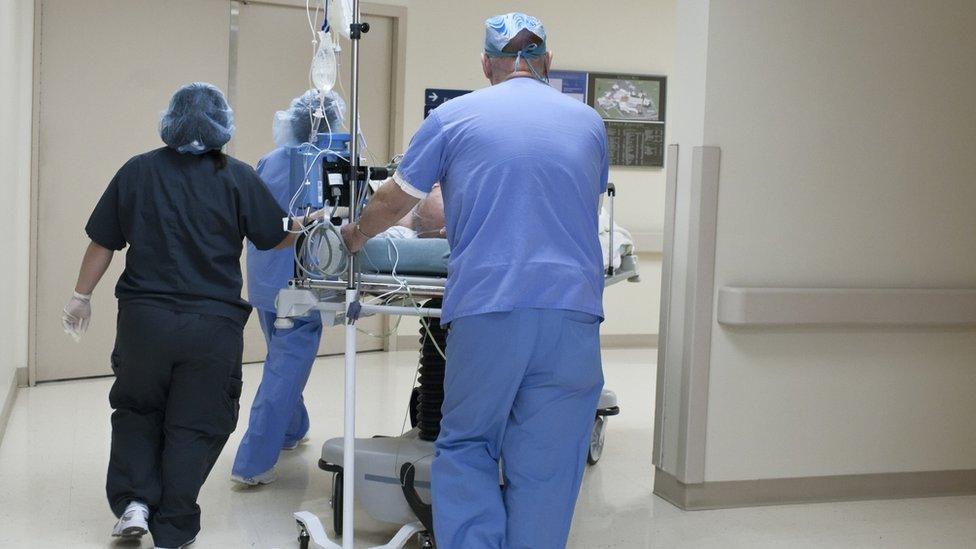
- Published9 June 2022
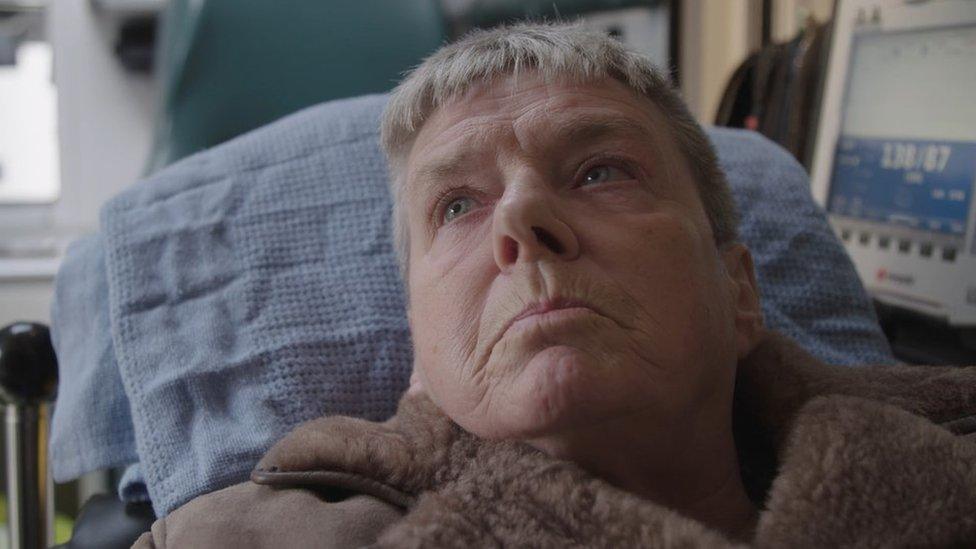
- Published5 January 2022

- Published3 December 2021

- Published30 July 2021
